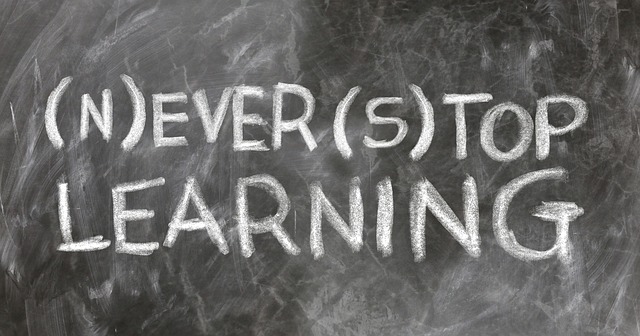Understanding the Importance of Work-Life Balance
In today’s fast-paced world, the balance between work and personal life often feels like a daunting challenge. For individuals, particularly those in the dynamic field of entrepreneurship, securing this balance is incredibly vital. A well-established work-life balance sets the stage for fulfilling personal time, which, surprisingly, directly nurtures our creative juices. When your mind isn’t saturated with work-related stress, it’s free to wander, think outside the box, and generate innovative ideas.
So, what exactly is work-life balance, and why does it matter? It refers to the equilibrium between professional endeavors and personal commitments. Individuals, especially entrepreneurs, tend to immerse themselves in their projects. After all, building a business demands considerable time and dedication. Yet, this often leads to skills and talents being neglected. Without proper breaks or distractions, creativity stagnates. However, making space for both relaxation and engagement in personal interests can stimulate new ideas and bounce-back creativity.
Moreover, establishing such balance creates a foundation of well-being, reducing stress and anxiety. Stress can create blockages in the mind, making it tough to tap into that creative side. Conversely, by drawing clear boundaries, you can recharge your mental batteries, fostering an environment for innovative thinking. Approaching life with a sense of fulfillment enables clearer paths to creativity. Ultimately, practical strategies for creating a balanced work schedule will not only aid the individual but also generate positive outcomes for their businesses.
Setting Clear Boundaries
Now that we understand why work-life balance is essential let’s explore how to achieve it as an entrepreneur. First and foremost, setting clear boundaries is your best friend. This means making a tangible separation between your workspace and your personal time. One of the most common pitfalls in entrepreneurship is allowing work to seep into personal time. Whether it’s answering emails at dinner or planning the next project during family outings, these blurs lead to burnout rather than creativity.
To counteract this, create physical boundaries. If working from home, designate a specific area just for work. When you step into this designated space, your brain should shift into a productivity mode. More importantly, once you leave this space, consciously stop thinking about work. Engage in hobbies or spend time with loved ones, giving your mind the necessary space to decompress and reset.
In addition to physical boundaries, establishing time boundaries is essential. Create a schedule and stick to it. Set specific work hours where you focus entirely on projects. More importantly, when that time is up, transition your mindset towards personal activities without guilt. Understand that you deserve that time away from work, and it will ultimately lead to rejuvenation and fresh, creative ideas.
The Impact of Physical Activity
When it comes to nurturing creativity, physical activity plays a remarkably vital role. Engaging in regular exercise can seem like a daunting task amidst busy schedules, but its benefits cannot be overstated. Exercise serves not only as a means to keep physically fit but also as a tremendous mental boost. It’s common knowledge that movement increases blood flow, but what about its impact on creative output? How does it encourage creativity?
Scientifically, exercise releases endorphins. These “happiness hormones” combat feelings of stress and anxiety. When your levels of stress decrease, your mind can explore new ideas with greater ease. For instance, a brisk walk can trigger something profound you hadn’t considered before. Sometimes, stepping away from a problem allows the mind to align more freely with creative solutions.
Additionally, exercise provides an avenue for mind-clearing moments. Engaging in physical activity gives you the chance to be present, focusing on movements instead of the stresses of daily life. Whether it’s a yoga class, a dance session, or a simple jog around the park, these moments become a breeding ground for innovative thoughts. Make it a habit to allocate daily time for physical activities, enhancing both your physical health and mental clarity. The synergy between body and mind positively reshapes how we approach creative tasks.
Embracing Hobbies and Interests
Having hobbies fuels passions outside of work, prompting creativity to flow. Personal interests become the inspiration for ideas that can often span into professional projects. For entrepreneurs, diving into hobbies provides a sense of fulfillment, unshackled by the pressures of the work environment. Say you love painting or knitting; dedicating time to these interests opens new pathways of thinking and creativity.
Fostering new skills can also incite curiosity, which can evolve into innovative ideas. For example, indulging in creative hobbies allows your brain to conform to unexpected outcomes. Painting might lead to an article where you explore color psychology, thus benefiting your business indirectly. Rather than viewing these activities as distractions, consider them essential tools for nurturing your creative reserve. The key lies in setting aside dedicated time to engage in these interests.
Furthermore, exploring diverse interests also enhances cognitive flexibility. This involves the brain’s ability to shift between thinking about different concepts and think about multiple concepts simultaneously. By embracing new hobbies, you’re less likely to experience creative blocks, ultimately feeding into your entrepreneurial mindset. Encourage your creative side by sprinkling your routine with engaging activities beyond work. This shift in mindset transforms the relationship between work and life in ways that amplify creativity.
Establishing a Support System
Creating a successful work-life balance often requires support from family, friends, or colleagues. A robust support system becomes a pillar encouraging you to embrace personal interests. When you share your aspirations with loved ones, it fosters an environment that values both work achievements and personal interests. It’s essential to communicate clearly about your needs, so those around you understand the balance you’re striving for.
Engaging with peers who share similar experiences as entrepreneurs can also be immensely beneficial. By collaborating and sharing insights, you can motivate one another while exchanging ideas that spur creativity. Facilitating discussions about balancing work and personal life can nurture a culture where creativity thrives without the constant weight of corporate pressures.
Moreover, investing time in relationships brings joy and satisfaction, which translates well into entrepreneurship. Having someone to celebrate accomplishments with – no matter how big or small – acts as a reminder of why you ventured into business in the first place, fueling your passion. Ultimately, securing a support network enhances not only personal well-being but your capacity for creativity in problem-solving and product development.
Practice Mindfulness and Relaxation Techniques
In a world brimming with distractions, practicing mindfulness stands as a pillar of maintaining work-life balance. Engaging in mindfulness allows you to cultivate better focus and a deeper connection with your creative self. Take a moment to consider how often stress tricks your mind into a chaotic action or web of distraction. Mindfulness techniques – such as meditation, deep breathing, or even guided visualization – enable you to harness your thoughts.
In addition, relaxation techniques significantly reduce the impact of stress on both mental and physical health. Performing deep breathing exercises before diving into work can ground you, sharpening your mind and fostering an atmosphere where creativity flourishes. The key here is consistent practice. Adopt these techniques regularly, and you will notice a remarkable change in your focus and creativity over time.
Mindfulness helps you embrace the ‘here and now’. By being present, you can explore your surroundings and experiences with newly opened eyes. Whether you’re sipping coffee or engaging in conversation, embracing the moment can act as fuel for innovation. As your senses awaken, your brain gravitates towards collecting different stimuli, translating into sparks of creativity. Thus, mindfulness shouldn’t just be a random practice; it should intersect beautifully with your work-life balance strategies, leading you straight into a corridor filled with creative ideas.
Emphasizing Quality Over Quantity
In entrepreneurship, it’s tempting to focus excessively on the amount of work you put in, measuring success through long hours rather than impactful output. Shifting from a quantity to quality mindset is transformative. This shift allows live creative space and fosters a more balanced approach to work and personal time. The essence of your work enriches rather than depletes you when you prioritize meaningful contributions over sheer volume.
In practical terms, this means identifying tasks that genuinely drive your goals. Allocate your time into high-value projects that yield significant results rather than minor details that eat away hours without meaningful returns. Regularly reflecting on what truly enhances your enterprise will save you from feeling overwhelmed, while conjuring creative and viable solutions.
Additionally, recognizing the times when you’re most productive can significantly help. Schedule your creative work during your peak hours, and reserve the less taxing tasks for routine times. By allowing high-value tasks to occupy your concentrated energy, you can balance workload effectively while enhancing creativity—and dare I say—enjoying it! Remember, intentionality breeds inspiration, driving you to explore creative routes and solutions while adhering to a healthy work-life balance.
Conclusion: The Journey of Balancing Work and Creativity
Creating a work-life balance that encourages creativity isn’t a one-size-fits-all approach. Everyone’s journey is different. By adopting strategies such as setting boundaries, engaging in physical activities, embracing hobbies, creating support systems, practicing mindfulness, and prioritizing quality over quantity, you build a fruitful creative environment for yourself. Along this journey, it’s crucial to understand that balance is not a destination, but rather a continuous practice that requires adjustment based on life phases and experiences. The goal here isn’t just to manage time but to craft a quality life that fosters creativity, making your entrepreneurial venture not only successful but also fulfilling.
FAQs
What is work-life balance, and why is it important for creativity?
Work-life balance refers to maintaining a healthy equilibrium between professional responsibilities and personal life. It shares importance with creativity because a balanced life reduces stress, freeing mental space for innovative thinking and idea generation.
How can I set clear boundaries between work and personal time?
Set up designated workspaces and specific work hours. Once your workday ends, switch off work notifications and consciously shift your focus to personal engagements without guilt.
What role does physical activity play in enhancing creativity?
Physical activity releases endorphins that mitigate stress. Exercise serves as a mental break, often leading to unexpected bursts of inspiration and improved cognitive flexibility that stimulates creativity.
How can hobbies foster creativity as an entrepreneur?
Hobbies provide an avenue for relaxation and skill development outside of work. Engaging in personal interests promotes joy and a refreshed perspective, which can lead to innovative ideas and solutions in your professional endeavors.
What are some practical mindfulness techniques to incorporate into my routine?
Gradually integrate mindfulness practices such as meditation, deep breathing, and regular reflections into your daily routine. Even dedicating a few quiet minutes a day can significantly enhance focus and creativity by reducing mental chaos.



